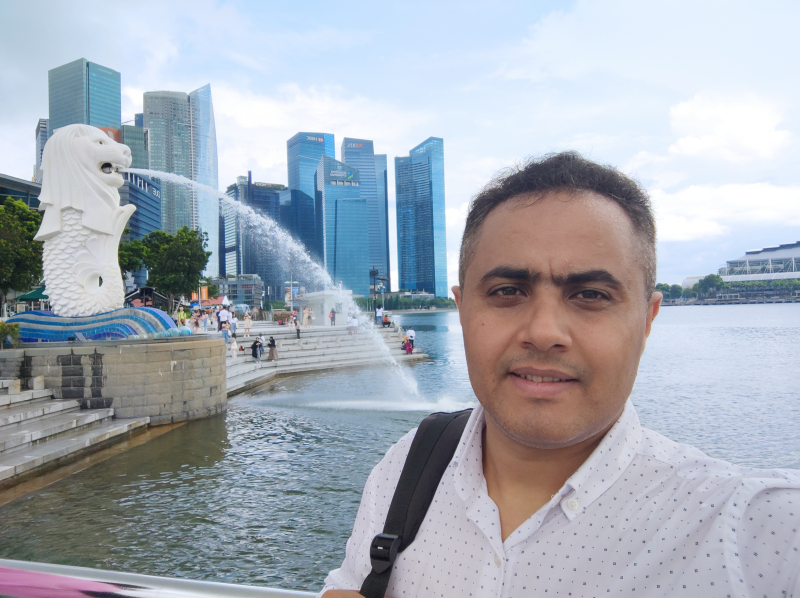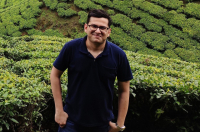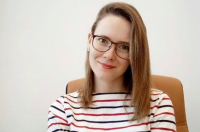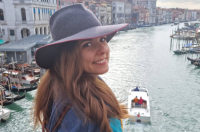Hello Walid, thanks for joining me today.
Thank you for the invitation. I am looking forward to our chat today.
Please introduce yourself to our readers.
I am Walid Al-Haidri from Yemen. I came to Russia back in 2005 to pursue a Bachelor’s degree at the Vladimir State University. Just like other international students, my study abroad journey began with a one-year Foundation Program where I studied the Russian language. Then I spent four years studying in a Bachelor’s program in biomedical engineering. I continued my higher education journey by first pursuing a Master’s degree followed by a PhD. I worked as an assistant professor at my alma mater for a few years before getting a research scholar position at ITMO a couple of years ago.
That’s so interesting. Did you come to Russia on a full scholarship?
Yes, I won a full scholarship from the government to pursue my education in Russia.
What motivated you to study abroad?
Since high school, I had a passion to explore different countries and learn about different cultures. I wanted to study in a foreign country and my parents were supportive of my idea. Upon doing a bit of research, I found that Russia is a top choice for tech enthusiasts like me. I discovered that Yemen citizens are eligible for a government scholarship and wasted no time applying for it.
What was your PhD thesis about?
I worked with the application of AI in biomedical engineering. I developed convoluted neural networks, a very new topic back in 2013.
Wow, working with a new concept surely gave you a competitive edge. Did you face any challenges?
I didn’t face a lot of challenges, thanks to my PhD supervisor, who was also trained in AI and neural networks. Of course, finding data was a challenge since there were not many open-source data repositories like there are now.
You joined Vladimir State University as a teaching assistant after finishing your PhD. How did that happen?
While I was a PhD student, I used to take classes in Russian. While my friends weren’t able to learn Russian well, I devoted my time to mastering it at a good level. When I finished my PhD, I got a call from my supervisor, who was also the dean of my faculty, to join as a teaching assistant and continue taking classes as well as doing research.
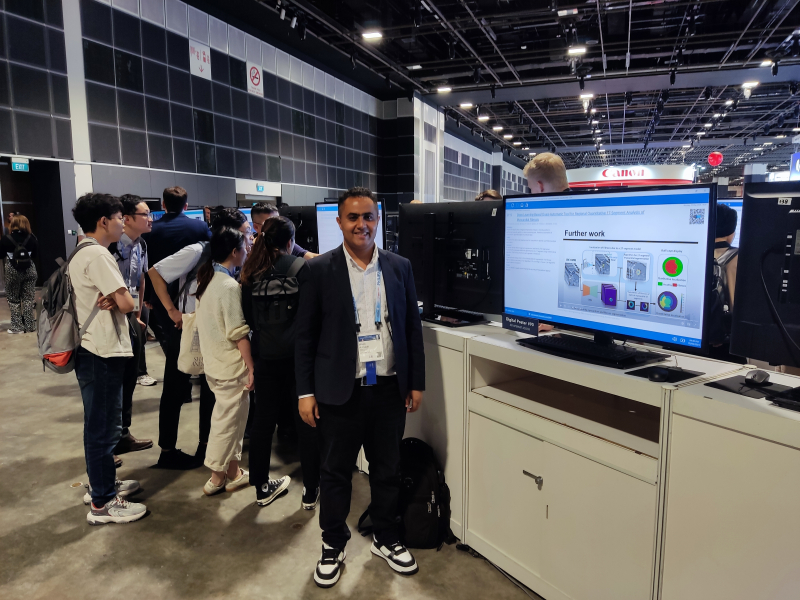
Walid at a scientific conference. Photo courtesy of the subject
Did you join ITMO through the ITMO.Fellowship program?
No, actually, I saw an advertisement that ITMO is looking for a researcher at the Faculty of Physics who has experience with developing AI models for biomedical applications. The role suited my profile well and I responded. I got shortlisted for an interview and ended up landing the job.
That’s very cool. So, what are you working on at ITMO?
At ITMO, I am developing AI models that can interpret MRI data. My teammates and I are working on algorithms that can process images produced by MRI and detect any early signs of abnormalities. We have partnered with a few hospitals that send us patient data. We use our AI tool to examine these images and generate reports. Our reports help doctors make more detailed and advanced diagnoses.
So you are working as a bridge between doctors and patients.
Yes, something like that. There’s a need for AI in medical science that would complement clinicians’ competencies and help them treat their patients better. We are making it a reality.
In the future, do you see AI taking over a doctor’s job?
Honestly, I don’t see that happening. AI can be a great tool for doctors, they can even work as assistants. But a doctor will always be a human being. Patients need love and care, which AI is not capable of doing at the moment. Human touch is essential in medical science.
I agree. Coming back to ITMO, are you teaching classes here?
Yes, this year, I am teaching two subjects – AI in biomedical engineering for Bachelor’s students and image data processing for Master’s students. Previously, I also conducted a few online workshops at ITMO, which were attended by a lot of students (including PhD students) and employees.
You are teaching in Russian, right?
Yes, all my classes are in Russian. But I also want to hold classes in English. Hopefully, from the next semester, I will also have a few classes in English under my belt.
Are you a Russian citizen now or are you living on a permanent residence?
I have dual citizenship now – Yemen and Russia.
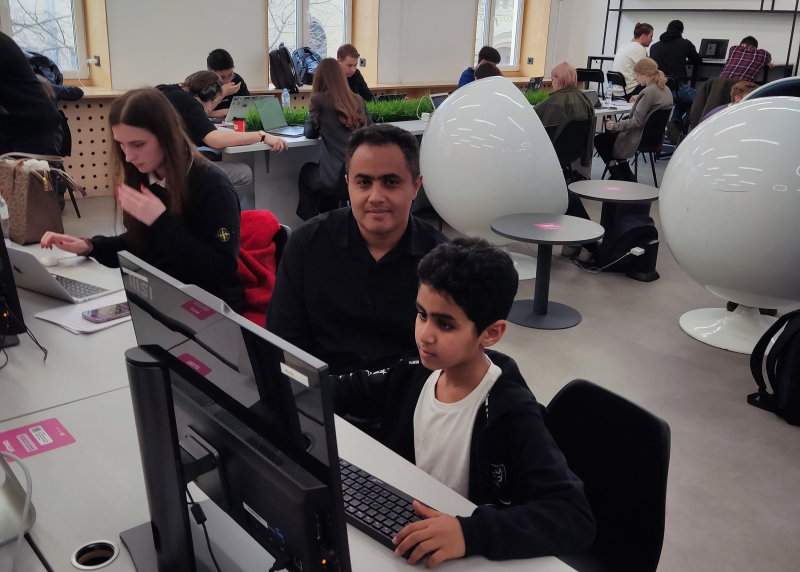
Walid with his son, Uwais, attending ITMO.Kids. Photo courtesy of the subject
What are your goals for the near future?
I want to continue doing my work with the highest efficiency, while also expanding my horizons and pushing myself more. I want to dive deeper into the concept of MRI. We are trying to develop portable MRI scanners at ITMO, which will surely be a game changer in healthcare.
Finally, any advice for international students in Russia who are trying to make a successful career here?
Time has changed a lot. The experiences I had while I was doing my Bachelor’s might not be relevant anymore now. We used to take notes diligently during lectures, but now students either do video recordings of the lectures or get notes emailed to them. Nevertheless, some things never change. For instance, people who move out of their comfort zone, always have an upper hand. I went against all odds to learn the Russian language and it paid me back greatly.
I would urge every international student to move out of their comfort zones and get into the mix. Unless you toil hard, you will never taste success!
